| Mughal-e-Azam | |
|---|---|
 Theatrical poster | |
| Directed by | K. Asif |
| Produced by | Shapoorji Pallonji |
| Written by |
Aman Kamal Amrohi K. Asif Wajahat Mirza Ehsan Rizvi |
| Starring |
Prithviraj Kapoor Dilip Kumar Madhubala Durga Khote |
| Music by | Naushad |
| Cinematography | R. D. Mathur |
| Edited by | Dharamvir |
Production company |
Sterling Investment Corporation |
Release date |
|
Running time | 197 minutes |
| Country | India |
| Language |
|
| Budget | ?10.5–15 million |
| Box office | ?55 million (net) |
Mughal-e-Azam (English: The Great Mughal) is a 1960 Indian epic historical drama film directed by K. Asif and produced by Shapoorji Pallonji. Starring Prithviraj Kapoor, Dilip Kumar, Madhubala, and Durga Khote, it follows the love affair between Mughal Prince Salim (who went on to become Emperor Jahangir) and Anarkali, a court dancer. Salim's father, Emperor Akbar, disapproves of the relationship, which leads to a war between father and son.
The development of Mughal-e-Azam began in 1944, when Asif read a play set in the reign of Emperor Akbar (1556–1605). Production was plagued by delays and financial uncertainty. Before its principal photography began in the early 1950s, the project had lost a financier and undergone a complete change of cast. Mughal-e-Azam cost more to produce than any previous Indian motion picture; the budget for a single song sequence exceeded that typical for an entire film of the period. The soundtrack, inspired by Indian classical and folk music, comprises 12 songs voiced by playback singers including Mohammed Rafi, Lata Mangeshkar and classical singer Bade Ghulam Ali Khan, and is often cited among the finest in Bollywood cinematic history.
Mughal-e-Azam had the widest release of any Indian film up to that time, and patrons often queued all day for tickets. Released on 5 August 1960, it broke box office records in India and became the highest-grossing Bollywood film of all time, a distinction it held for 15 years. By some accounts, Mughal-e-Azam was the highest-grossing Bollywood film of all time, adjusted for inflation. The accolades awarded to the film include one National Film Award and three Filmfare Awards at the 8th Filmfare Awards. Mughal-e-Azam was the first black-and-white Hindi film to be digitally coloured, and the first in any language to be given a theatrical re-release. The colour version, released in November 2004, was a commercial success.
The film is widely considered to be a milestone of its genre, earning praise from critics for its grandeur and attention to detail. Film scholars have welcomed its portrayal of enduring themes, but question its historical accuracy.
Contents
Plot
| Images of Mughal-e-Azam and plot details |
Emperor Akbar (Prithviraj Kapoor), who does not have a male heir, undertakes a pilgrimage to a shrine to pray that his wife Jodhabai (Durga Khote) give birth to a son. Later, a maid brings the emperor news of his son's birth. Overjoyed at his prayers being answered, Akbar gives the maid his ring and promises to grant her anything she desires.
The son, Prince Salim, grows up to be spoiled, flippant, and self-indulgent. His father sends him off to war, to teach him courage and discipline. Fourteen years later, Salim returns as a distinguished soldier (Dilip Kumar) and falls in love with court dancer Nadira, whom the emperor has renamed Anarkali (Madhubala), meaning pomegranate blossom. The relationship is discovered by the jealous Bahar (Nigar Sultana), a dancer of a higher rank, who wants the prince to love her so that she may one day become queen. Unsuccessful in winning Salim's love, she exposes his forbidden relationship with Anarkali. Salim pleads to marry Anarkali, but his father refuses and imprisons her. Despite her treatment, Anarkali refuses to reject Salim, as Akbar demands.
Salim rebels and amasses an army to confront Akbar and rescue Anarkali. Defeated in battle, Salim is sentenced to death by his father, but is told that the sentence will be revoked if Anarkali, now in hiding, is handed over to die in his place. Anarkali gives herself up to save the prince's life and is condemned to death by being entombed alive. Before her sentence is carried out, she begs to have a few hours with Salim as his make-believe wife. Her request is granted, as she has agreed to drug Salim so that he cannot interfere with her entombment. As Anarkali is being walled up, Akbar is reminded that he still owes her mother a favour, as it was she who brought him news of Salim's birth. Anarkali's mother pleads for her daughter's life. The emperor has a change of heart, but although he wants to release Anarkali he cannot, because of his duty to his country. He, therefore, arranges for her secret escape into exile with her mother, but demands that the pair are to live in obscurity and that Salim is never to know that Anarkali is still alive.
Cast
- Prithviraj Kapoor as Akbar
- Dilip Kumar as Salim
- Madhubala as Nadira (Anarkali)
- Durga Khote as Jodhabai
- Nigar Sultana as Bahar, a court dancer
- Ajit as Durjan Singh
- Murad as Raja Man Singh
- M. Kumar as Sangtarash, the royal sculptor
- Sheila Dalaya as Suraiyya, Anarkali's sister
- Jilloo Maa as Anarkali's mother
Production
Development
The Urdu dramatist Imtiaz Ali Taj wrote a play about the love story of Salim and Anarkali in 1922, based more on a 16th-century legend than on fact. A stage version was soon produced, and screen versions followed. Ardeshir Irani made a silent film, Anarkali, in 1928, and remade it with sound in 1935. In the early 1940s, the tale of Anarkali inspired producer Shiraz Ali Hakeem and young director K. Asif (Karimuddin Asif) to make another film adaptation which they would title Mughal-e-Azam. They recruited four Urdu writers to develop the screenplay and dialogue: Aman (Zeenat Aman's father, also known as Amanullah Khan), Wajahat Mirza, Kamaal Amrohi, and Ehsan Rizvi. It is not known how the writers collaborated or shared out their work, but in 2010 The Times of India said that their "mastery over Urdu's poetic idiom and expression is present in every line, giving the film, with its rich plots and intricate characters, the overtones of a Shakespearean drama." As the script neared completion, Asif cast Chandra Mohan, D.K. Sapru, and Nargis for the roles of Akbar, Salim, and Anarkali, respectively. Shooting started in 1946 in Bombay Talkies studio.
The project faced multiple hurdles, which forced its temporary abandonment. The political tensions and communal rioting surrounding India's 1947 partition and independence stalled production. Shortly after partition, Shiraz Ali migrated to Pakistan, leaving Asif without a financier. The actor Chandra Mohan suffered a heart attack and died in 1949. Shiraz Ali had previously suggested that business tycoon Shapoorji Pallonji could finance the film. Although Pallonji knew nothing about film production, in 1950 he agreed to produce the film because of his interest in the history of Akbar. Production was then restarted with a new cast.
Believing that the film had been cancelled, Kamal Amrohi, one of the scriptwriters who was also a director, planned to make a film on the same subject himself. When confronted by Asif, he agreed to shelve the project. Another unrelated film production based on the same stage play was Nandlal Jaswantlal's Anarkali, starring Bina Rai and Pradeep Kumar, which became the highest grossing Bollywood film of 1953.
Casting
Asif had initially rejected Dilip Kumar for the part of Prince Salim. Kumar was reluctant to act in a period film, but accepted the role upon the insistence of the film's producer. According to Kumar, "Asif trusted me enough to leave the delineation of Salim completely to me." Kumar faced difficulty while filming in Rajasthan owing to the heat and the body armour he wore. The part of Anarkali had first been offered to Suraiya but later went to Madhubala, who had been longing for a significant role. Madhubala suffered from congenital heart disease, which was one of the reasons why at times she fainted on set; she also endured skin abrasions while filming the prison sequences, but was determined to finish the film.
To become the character of Emperor Akbar, Prithviraj Kapoor was reported to have "relied completely on the script and director". Prior to make-up, Kapoor would declare, "Prithviraj Kapoor ab jaa rahaa hai" ("Prithviraj Kapoor is now going"); after make-up, he would announce, "Akbar ab aa rahaa hai" ("Akbar is now coming"). Kapoor faced difficulty with his heavy costumes, and suffered blisters on his feet after walking barefoot in the desert for a sequence. Lance Dane, a photographer who was on set during the filming, recalled that Kapoor struggled to remember his lines in some scenes; he mentioned one scene in particular that Kapoor required 19 takes to get right. At the time of filming, Kapoor who was on a diet, was told by Asif to regain the lost weight for his portrayal of Akbar. Durga Khote was cast as Akbar's wife Jodhabai, and Nigar Sultana as the dancer Bahar. Zakir Hussain, who later became a tabla maestro, had initially been considered for the part of the young Prince Salim, but it became the debut role of Jalal Agha, who later performed on the song "Mehbooba Mehbooba" from Sholay (1975).
Design
The production design of the film, led by art director M. K. Syed, was extravagant, and some sets took six weeks to erect. The film, mostly shot in studio sets designed to represent the interior of a Mughal palace, featured opulent furnishings and water features such as fountains and pools, generating the feel of a Hollywood historical epic of the period. The song "Pyar Kiya To Darna Kya" was filmed in Mohan Studios on a set built as a replica of the Sheesh Mahal in the Lahore Fort. The set was noted for its size, measuring 150 feet (46 m) in length, 80 feet (24 m) in breadth and 35 feet (11 m) in height. A much-discussed aspect was the presence of numerous small mirrors made of Belgian glass, which were crafted and designed by workers from Firozabad. The set took two years to build and cost more than ?1.5 million (valued at about US$314,000 in 1960), more than the budget of an entire Bollywood film at the time. The film's financiers feared bankruptcy as a result of the high cost of production.
Artisans from across India were recruited to craft the props. The costumes were designed by Makhanlal and Company, and Delhi-based tailors skilled in zardozi embroidery stitched the Mughal costume. The footwear was ordered from Agra, the jewellery was made by goldsmiths in Hyderabad, the crowns were designed in Kolhapur
Watch movie Mughal E Azam online on Amazon
Watch movie Mughal E Azam online
Watch The Movie On PrimeLucky: No Time For Love Full HD Movie Download

Daasi Full HD Movie Download
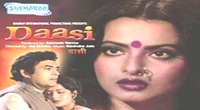
Namak Halal Full HD Movie Download
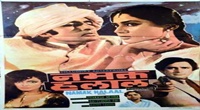
Papa Kahte Hain Full HD Movie Download
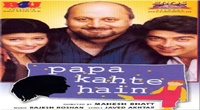
Paise Ki Gudiya Full HD Movie Download
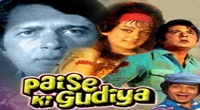
Shob Charitro Kalponik Full HD Movie Download

Manzil Full HD Movie Download

Hot Malaika Full HD Movie Download

Devi Mahathmyam Full HD Movie Download
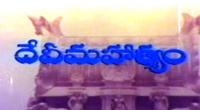
Bhayankara Phichisi Full HD Movie Download
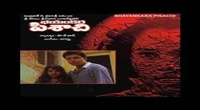
Veerta The Power Full HD Movie Download
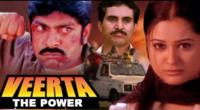
Soggadi Pellam Full HD Movie Download
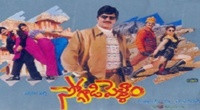
Mata Velankanni Full HD Movie Download
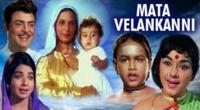
The Bucket List Full HD Movie Download

Dongalaku Saval Full HD Movie Download
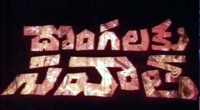
Bangaru Panjaram Full HD Movie Download
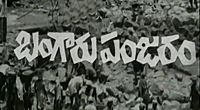
Kalaignan Full HD Movie Download

Maaman Magal Full HD Movie Download

Mohabbatein Full HD Movie Download
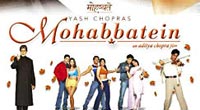
Rocket Singh: Salesman of the Year Full HD Movie Download
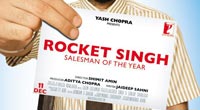
Vijay Full HD Movie Download

Download latest Movie from bollywood
- 1> baaghi 3
- 2> THE SKY IS PINK MOVIE FULL STORY AND REVIEW
- 3> Luka Chuppi
- 4> TO ALL THE BOYS I’VE LOVED BEFORE
- 5> Kabir Singh
- 6> Street Dancer 3D
- 7> Simmba
- 8> Gone Girl
- 9> The Girl Who Lived
- 10> Ludo
- 11> DILWALE DULHANIA LE JAYENGE
- 12> GUILTY
- 13> The Godfather
- 14> Adventures of Rusty
- 15> Sooryavanshi
- 16> Satyameva Jayate 2
- 17> Thappad
- 18> Bhool Bhulaiyaa 2
- 19> KGFChapter 2
- 20> Mardaani 2
- 21> Pinjar
- 22> Shivaji maharaj
- 23> Ek Villian 2
- 24> Hungama 2
- 25> Divergent
- 26> Mumbai Saga
- 27> The Internship
- 28> HIT (telugu)
- 29> Panga
- 30> The perfect date
- 31> 16 December
- 32> Gopala Gopala (Telugu)
- 33> Brahmastra
- 34> Gangubai Kathiawadi
- 35> Manmadhudu
- 36> Nenu local
- 37> Mahanati
- 38> Shatamanam bavathi
- 39> Lagaan
- 40> After
- 41> MOM
- 42> Shamshera
- 43> Raguvaran BTech
- 44> Khakee
- 45> The villain
- 46> OM
- 47> Mr. perfect
- 48> Bueatifull mind
- 49> Hichki
- 50> Gabbar Singh
- 51> Jogi
- 52> Before Sunrise
- 53> Before Sunset
- 54> Before Midnight
- 55> The Big Bull
- 56> Top Gun: Maverick
- 57> The Purge
- 58> The Sky is Pink
- 59> Laxmmi Bomb
- 60> Sadak 2
- 61> Sufna
- 62> Prithviraj
- 63> PK
- 64> Coolie No 1(2020)
- 65> Black Widow
- 66> Dear Zindagi
- 67> Dil Bechara
- 68> PHIR HERA PHERI
- 69> WAR
- 70> Dostana
- 71> RRR: Roudram Ranam Rudhiram
- 72> Maidan
- 73> Dabbang 3
- 74> Chhalaang
- 75> life as we know it
- 76> SherShaah
- 77> Sandeep Aur Pinky Faraar
- 78> Event Horizon
- 79> 83
- 80> Radhe: Your Most Wanted Bhai
- 81> Gunjan Saxena: The Kargil Girl
- 82> Mr India
- 83> Vivah
- 84> Anokha Bandhan
- 85> Ghost
- 86> Bhoot: Part One - The Haunted Ship
- 87> Haseen Dilruba
- 88> Laal Singh Chaddha
- 89> Qismat
- 90> Rajput
- 91> Drive
- 92> Dil Chahta Hai
- 93> Dil Ki Baazi
- 94> Dil Ka Rishta
- 95> Teesri Manzil
- 96> Dil
- 97> Love Aaj Kal
- 98> Khaali Peeli
- 99> Bunty Aur Babli 2
- 100> Atrangi Re
- 101> Gulabo Sitabo
- 102> Jodi
- 103> Suraj Pe Mangal Bhari
- 104> Deewana
- 105> Attack
- 106> Sardar Udham Singh
- 107> Toofan
- 108> THE LOVEBIRDS
- 109> Jersey
- 110> Ginny Weds Sunny
- 111> Thalaivi
- 112> Shiddat
- 113> Angels vs Zombies
- 114> Koi Mil Gya
- 115> Thank God
- 116> Bhuj: The Pride of India
- 117> Hum Aapke Hain Kaun
- 118> The Platform
- 119> Bird Box
- 120> Roohi Afzana
- 121> Torbaaz
- 122> Nikamma
- 123> World War Z
- 124> Extraction
- 125> Train to Busan
- 126> Life of Pi
- 127> SHAADI MEIN JROOR AANA
- 128> Himmat Aur Mehnat
- 129> To All The Boys: P.S. I Still Love You
- 130> Mimi
- 131> Good Newwz
- 132> Shubh Mangal Zyada Saavdhan
- 133> Raabta
- 134> Harry Potter and the Philosopher's Stone
- 135> Harry Potter and the Chamber of Secrets
- 136> Chhapaak
- 137> War of the Worlds
- 138> Harry Potter and the Prisoner of Azkaban
- 139> Harry Potter and the Goblet of Fire
- 140> MURDER MYSTERY
- 141> Shakuntala Devi
- 142> Bachchan Pandey
- 143> Jayeshbhai Jordar
- 144> Sheer Qorma
- 145> Saina
- 146> 'O' Pushpa I hate tears
- 147> Kedarnath
- 148> MS Dhoni The Untold Story
- 149> Chhichhore
- 150> Badhaai Ho
- 151> Unstoppable
- 152> Oz the Great And Powerful
- 153> The Girl on the Train
- 154> Haathi Mere Saathi 2020
- 155> The Conjuring: The Devil Made Me Do It
- 156> Gandhi Se Pehle Gandhi
- 157> The Song of Scorpions
- 158> Srimanthudu
- 159> Hello Guru Prema Kosame
- 160> Beauty and The Beast
- 161> Black Panther
- 162> Charlie and the Chocolate Factory
- 163> Bole Chudiyan
- 164> Fidaa
- 165> Duvvada Jagannadham
- 166> Bruce Lee: The Fighter
- 167> Hyper
- 168> Yaara
- 169> Red (2020)
- 170> Shivam
- 171> That Is Mahalakshmi
- 172> Nishabdham
- 173> Aashram 2020 web series
- 174> Laxmii
- 175> Mismatched
- 176> STUDENT OF THE YEAR 2
- 177> NAIL POLISH
- 178> Ramprasad Ki Tehrvi
- 179> KAAGAZ
- 180> 12 o Clock
- 181> The Power
- 182> bolo hau
- 183> Tribhanga
- 184> JAMUN
- 185> Madam Chief Minister
- 186> Maasaab
- 187> Aadhaar
- 188> Tanhaji
- 189> Bhaagi 3
- 190> Bhootnath
- 191> MALANG
- 192> Jai Mummy Di
- 193> Haathi Mere Saathi 2021
- 194> Shakeela
- 195> Unpaused
- 196> Annayya
- 197> Vamsoddharakudu
- 198> Mrugaraju
- 199> Narasimha Naidu
- 200> Sankranti
- 201> Manasu Maata Vinadhu
- 202> Anjaane
- 203> Apaharan
- 204> Bachke Rehna Re Baba
- 205> Bewafaa
- 206> Roohi
- 207> Radhe
- 208> Zindagi Khoobsoorat Hai
- 209> Yeh Mohabbat Hai
- 210> Yeh Kya Ho Raha Hai?
- 211> The Tomorrow War
- 212> DehradunDiary
- 213> Meri Shaadi Karaoo
- 214> Matruu Ki Bijlee Ka Mandola
- 215> No One Killed Jesica
- 216> Aag Ka Goola
- 217> Eight Million Dollars
- 218> Three Hundred
- 219> Cats and Dog
- 220> Decoy
- 221> Gold Rush
- 222> You Have Got Mail
- 223> Final Destination three
- 224> Tofan
- 225> Jungle
